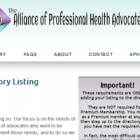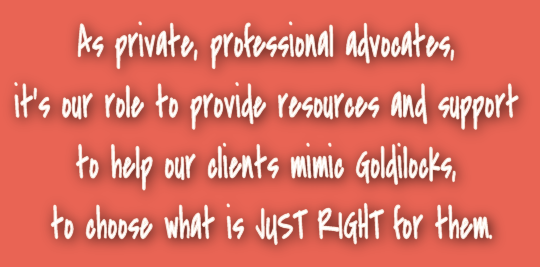A kidnapping and murder last weekend raises questions for all professionals who work one-on-one with strangers….
If it can happen to a real estate agent, it can happen to a health advocate, too.
I’m referring to the headlines about Beverly Carter in Little Rock, Arkansas. She was a real estate agent who had gotten a call from a stranger to show a home she had listed for sale. And then she disappeared. Her body was found several days later in a shallow grave.
See that second sentence? “She was a real estate agent who had gotten a call from a stranger to show a home she had listed for sale.” It could just as easily have said, “She was a patient advocate who had gotten a call from a stranger to discuss the problems he was having with his medical care (or medical bills.)
Like real estate agents, the nature of the work we do is to help strangers. In fact, if we don’t help strangers, then we won’t stay in business for long – it’s not a choice, it’s a necessity.
Common sense should tell us never to just show up at a stranger’s home – and yet, I have no doubt that many of you reading this post have done just that.
And as you read this post, you are thinking, “well, sure, but….. ”
But what? But you thought it would be safe?
Uh-huh. And so did Beverly Carter. She didn’t realize that she would be dead before the day was out. Arron Lewis, the man accused of kidnapping and killing her said she was targeted because she was “a woman that worked alone.”
OK – I know what you are thinking. You think I sound like your mother. “You can’t be too careful!” Mom would say. “Don’t talk to strangers!” Mom would say.
But no – this is beyond all that… this is real safety advice. A jarring reminder that you need to take precautions to protect yourself – because you work with strangers for a living.
The safety advice is – don’t go alone to meet a stranger* in his or her home until you get to know them and trust them. There are public places you can meet that can afford the privacy you need – coffee shops, or libraries, for example. Or, if the stranger claims he or she is too sick to go out and therefore you must go to the home, you can take someone with you, introducing them as a second set of ears to be sure you understand the potential client’s needs well enough.
Even if the person sounds sickly or desperate on the phone, you can’t be sure they are. Meeting them for the first time alone in a private place (like a home) should sound alarm bells in your head. Just don’t do it.
There are other common sense safety issues for advocates to be concerned with, too.
It was just a year ago that I asked the question, “Is Grampa Packin’ Heat?” which was based on a post in our APHA Forum about whether advocates should ask their clients if they have guns in their homes…. The question addressed a variety of issues like client frustration (potential suicide) or anger (potential murder)…. (and as you’ll see by the comments, not everyone agreed with me….)
So – the bottom line? USE YOUR COMMON SENSE! Prepare for the worst, keep yourself safe as if the worst could happen, and then trust your judgment from there.
And if you won’t do it for yourself? Do it as part of your responsibility as a pioneer in a new profession of advocacy. As we grow our profession, and work hard to be sure the news and our outcomes are only positive, it’s incumbent upon all of us to use common sense at all times.
……………
*Strangers – I know some of you will argue with exactly who a stranger is, so let me clarify my definition here. A stranger is someone you haven’t met and you don’t know. Period. Even if that person claims to know you, or claims a relation to someone you know (“I’m your friend Grace’s cousin,” or “My friend Jess works with your husband”) – if YOU don’t know that person, then he or she is a stranger.
. . . . . . . . . . . . . . . . . . . . . . . . . . . . . .
Share your experience or join the conversation!
LEARN ABOUT APHA MEMBERSHIP | TWITTER | LINKED IN





Excellent advice and something I do not usually think about! Thank you